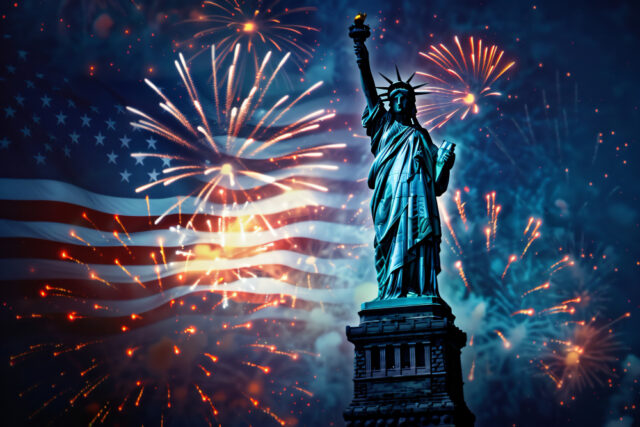Kalshi, a prominent trading platform, has successfully reopened the possibility of betting on U.S. elections after a recent federal appeals court ruling. This decision marks a significant moment for the intersection of politics and financial markets, as Kalshi now has the potential to offer legally sanctioned election betting, which has been a topic of debate in the regulatory sphere.
The Background of Kalshi’s Legal Battle
Kalshi’s legal victory stems from a long-standing regulatory struggle with the Commodity Futures Trading Commission (CFTC), which oversees the trading of prediction markets. Previously, the CFTC had blocked the platform’s efforts to list event contracts tied to U.S. political elections, citing concerns over the ethical implications and potential risks associated with betting on election outcomes.
However, after a series of legal filings and appeals, the federal appeals court has overturned the previous decision, granting Kalshi the right to move forward with offering election-based contracts under regulated conditions.
Key Legal Arguments:
- Market Integrity: Kalshi argued that allowing election betting would bring transparency and regulated oversight to what has historically been a gray market, reducing illegal betting activities.
- First Amendment Rights: Kalshi also leaned on the argument that preventing election betting violated free speech principles, as election contracts could be seen as a form of political expression and opinion.
The Importance of Election Betting Markets
Election betting markets offer a unique way for individuals to engage with political events, allowing them to place real-money bets on outcomes such as the U.S. presidential race, congressional elections, or gubernatorial contests. These markets are often viewed as barometers of public opinion and are closely watched for indications of how different segments of the population expect the political landscape to unfold.
Benefits of Election Betting:
- Predictive Power: Historically, betting markets have often been more accurate than polling in predicting election results. The “wisdom of the crowd” concept suggests that collective market opinions, driven by financial incentives, tend to forecast outcomes effectively.
- Engagement: Election betting can increase public engagement in political processes, drawing more attention to key events and issues as individuals become financially invested in the outcomes.
- Market Liquidity: Platforms like Kalshi can create more robust trading environments, offering a regulated and safe space for participants to trade event-based contracts.
What the Court’s Decision Means for Kalshi
The federal appeals court ruling is a major win for Kalshi, as it clears the path for the company to offer election-related contracts for the 2024 U.S. election cycle and beyond. The decision not only allows Kalshi to list these contracts but also opens the door for other platforms to explore similar opportunities, provided they meet regulatory guidelines.
Next Steps for Kalshi:
- CFTC Approval: While the court’s decision paves the way for election betting, Kalshi will still need to ensure full compliance with CFTC rules and obtain final approval from the commission.
- Market Launch: If approved, Kalshi could launch election betting markets in the coming months, providing participants with a legal and regulated environment to trade on political outcomes.
- Public Education: Kalshi will likely need to invest in educating users about the mechanics of event contracts, including the risks involved and how election markets differ from traditional financial instruments.
The Broader Implications for the Gambling and Trading Industry
This ruling is not just a win for Kalshi but has the potential to reshape the broader gambling and financial trading industries. Legalized election betting could become a significant new market, attracting a mix of gamblers, political enthusiasts, and financial traders.
Potential Industry Impact:
- Expansion of Betting Markets: As more platforms consider offering election betting, the scope of event-based contracts could expand, possibly including everything from local elections to referendums and major political events.
- Regulatory Scrutiny: While the court’s ruling is a step forward, the introduction of election betting will be closely monitored by regulators to ensure market integrity and prevent potential misuse, such as market manipulation or influence on election outcomes.
- Innovation in Financial Products: Election betting could inspire the creation of new financial products that blend the traditional lines between gambling and market speculation, offering a fresh avenue for investor engagement.
Ethical and Regulatory Considerations
The concept of betting on elections raises ethical concerns, particularly around the potential influence such markets might have on democratic processes. Critics argue that legalizing election betting could undermine the seriousness of elections, turning them into speculative financial events. Moreover, there are concerns about how these markets could impact voter behavior or be used to manipulate public opinion.
Ethical Concerns:
- Influence on Voters: There is a possibility that election betting markets could sway voters’ perceptions, leading to biased media coverage or the spread of misinformation to influence market prices.
- Market Manipulation: Large-scale bettors or politically motivated individuals could attempt to manipulate betting markets, creating false narratives about candidates or outcomes.
- Legitimacy of Elections: Critics worry that treating elections like speculative financial events could erode public trust in the electoral process, making it appear less about civic duty and more about financial gain.
Regulatory Safeguards:
- Strict Oversight: The CFTC will need to implement stringent oversight mechanisms to ensure that election betting markets remain transparent, fair, and free from manipulation.
- Participant Protection: Platforms like Kalshi must adopt robust measures to protect participants from financial harm, including clear risk disclosures and responsible betting tools.
Conclusion
The federal appeals court’s decision to allow Kalshi to offer U.S. election betting marks a pivotal moment in the intersection of politics, finance, and gambling. While the ruling opens up a potentially lucrative new market, it also brings with it a range of ethical, regulatory, and societal questions that must be carefully navigated. As Kalshi prepares to launch its election betting markets, the industry will be watching closely to see how this new venture unfolds and what it means for the future of event-based trading.























